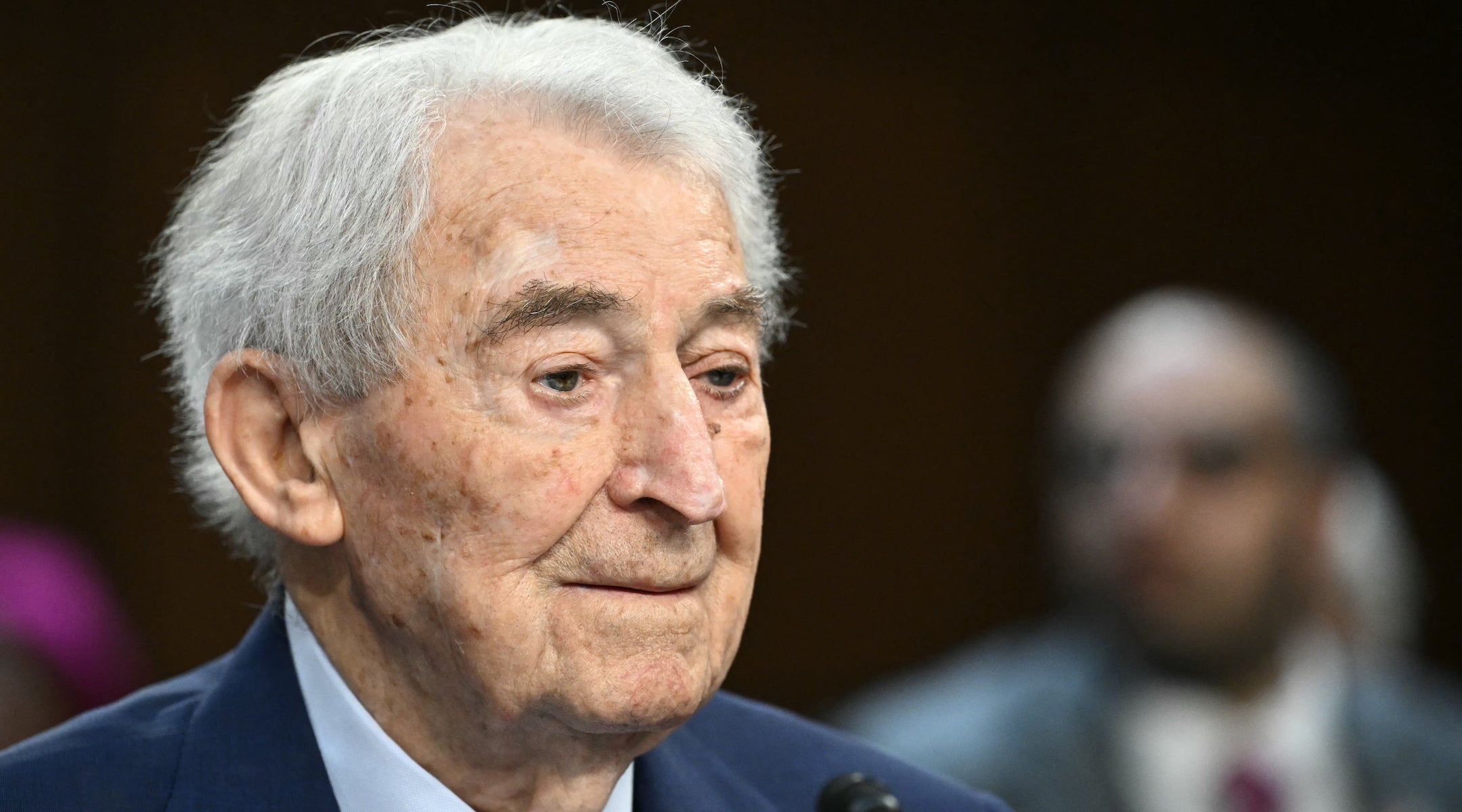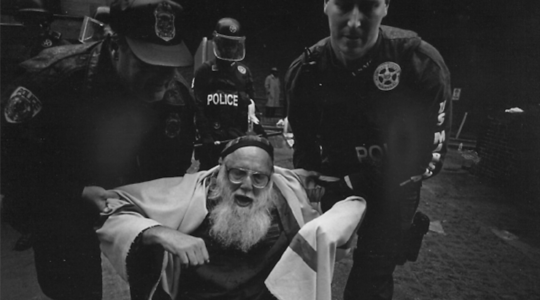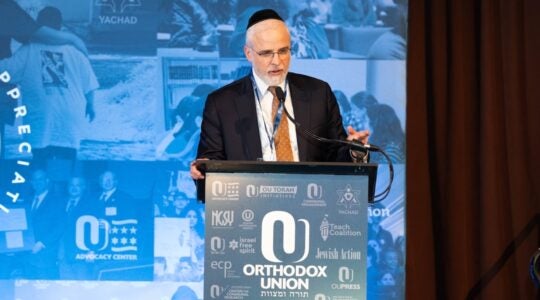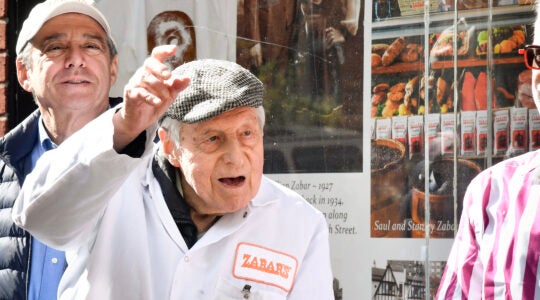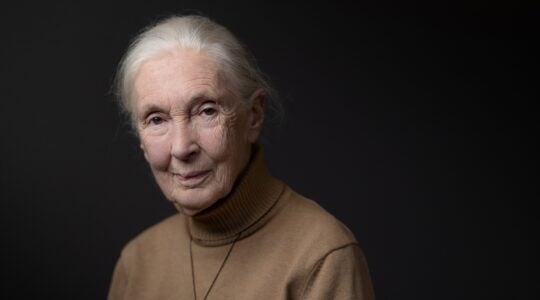David Schaecter, a Holocaust survivor who helmed the Holocaust Survivors’ Foundation USA and established the Holocaust memorial in Miami Beach, has died at 96.
His foundation announced Schaecter’s death Thursday, months after he delivered an address to the Senate Special Committee on Aging on April 30 about rising antisemitism in the United States.
“I am here to remind everyone that there are still thousands of survivors alive today who are in desperate need, and who cannot be forgotten,” Schaecter told the Senate committee. “Thank you for having this hearing on antisemitism. It has been a problem and is still a problem.”
His foundation, created in 2000, often took a more aggressive stance than other Jewish organizations in pursuing restitution of goods looted during the Holocaust. His advocacy was responsible for the cancellation of an auction of jewelry linked to a Nazi plunder in August 2023 by Christie’s auction house.
In a 2002 article in the Sh’ma journal, Schaecter also took aim at the Claims Conference for what he said was failing to use restitution funds allocated by other countries to meet the needs of survivors — a critique rejected by the organization, which at the time had negotiated $50 billion for survivors.
“How can plans for a ‘Jewish People’s Fund’ go forward while survivors languish on waiting lists for the health care they deserve, especially after all they have endured?” wrote Schaecter. “How dare these institutions presume to spend ‘restituted’ funds for their favored ‘philanthropic’ projects into the next century, using money claimed from the most terrorized victims of the past century?”
He was still pressing the case last year when the Claims Conference announced an increase of $114 million in support for Holocaust survivors following negotiations with the German federal government. He told JNS at the time that he was “angry beyond words” that the organization had not secured more, including to cover the costs of home care for elderly survivors.
Schaecter was born in a small town in Slovakia in 1929. In 1940, his father was taken by the government and never seen again. When he was 11 years old, Schaecter was taken with his family on a train to Auschwitz where he was separated from his mother and two sisters who also did not survive.
Schaecter worked at Auschwitz with his brother, Yaakov, for two years cleaning the train cars that they arrived in.
“I can still smell and taste the filth and the chemicals we had to use. The Nazis were not selective on who they beat or who they killed. Yaakov would take the beatings meant for me, and he shared his food with me, and did small things to help me survive,” Schaecter told the Senate committee about his experience.
In 1943, when he was 13, Schaecter and his brother were transported to the Buchenwald concentration camp where his brother fell ill and was killed by the Nazis.
A year later, Schaecter escaped when a train he was being transported in was bombed by the U.S. Air Force. After recovering in a hospital, he returned home but was met by antisemitism and had to flee to Prague. Schaecter lost 105 relatives during the Holocaust.
He came to America in 1950, where he learned English in nine weeks and later graduated from UCLA with a degree in industrial engineering. In 1952, Schaecter married his wife Marvis, then moved to Miami with her and their daughter, Lisa, in 1956. There, Schaecter founded a local business manufacturing and distributing hardware and later worked in real estate.
In 1989, Schaecter founded the Holocaust Memorial in Miami Beach alongside his wife, philanthropist Norman Braman and four other individuals. The memorial has served as a beacon of Holocaust education in Southern Florida, with busloads of students and visitors from around the world visiting every year since its establishment.
Schaecter was also credited by the couple behind the forthcoming Holocaust museum in Boston with inspiring them to pursue the idea.
“David was a true national leader, a dynamo of conscience and courage, who never backed down. He demanded truth and fairness from public officials and institutions who refused to do justice for Holocaust survivors and their families,” Sam Dubbin, counsel for HSF, said in a statement. “At the same time, David showed remarkable tenderness and love throughout his life, touching and educating tens of thousands of children and adults about the realities of the Holocaust, and the need to embrace our common humanity.”
Schaecter also participated in several trips with March for the Living in Israel and Poland where he taught thousands of young people about his experience during the Holocaust.
“For the last 50 years of my life, I speak to all the Jewish kinder. And I ask three things of them: I want them to know who they are. I want them to know what happened to our people. But mostly I want them to become my mouthpiece when I’m no longer here,” said Schaecter in an interview during the 2023 March of the Living at Auschwitz.
Schaecter is survived by his second wife, Sydney; his daughter, Lisa; his son Neal and his wife Amy; five grandchildren; and five great-grandchildren.
JTA has documented Jewish history in real-time for over a century. Keep our journalism strong by joining us in supporting independent, award-winning reporting.
